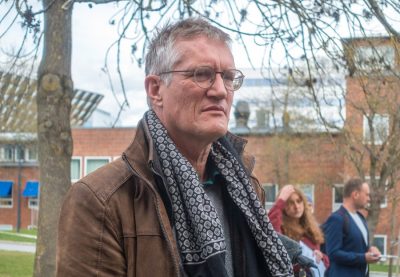Daily COVID Deaths in Sweden Hit Zero, as Other Nations Brace for More Lockdowns
Sweden isn't in the news much these days. There's a reason for that.

All Global Research articles can be read in 51 languages by activating the “Translate Website” drop down menu on the top banner of our home page (Desktop version).
Visit and follow us on Instagram at @crg_globalresearch.
***
More than 100,000 people flooded streets in France over the weekend and multiple COVID vaccination centers were vandalized as opposition grew to the government’s most recent pandemic strategy. In President Emmanuel Macron’s latest incarnation of lockdowns, government officials have decreed that unvaccinated individuals will no longer be allowed to enter cafes, restaurants, theaters, public transportation and more.
Needless to say, people were not happy.
France’s approach is unique, but it’s just one of many countries around the world imposing new restrictions as fears grow over a new variant of COVID-19. Australia’s recent restrictions have placed half the country under strict lockdown—even though a record 82,000 tests had identified just 111 new coronavirus cases—while restaurants in Portugal are struggling to surviveamid newly imposed restrictions.
One country not making much news is Sweden.
Sweden, of course, was maligned in 2020 for foregoing a strict lockdown. The Guardian called its approach “a catastrophe” in the making, while CBS News said Sweden had become “an example of how not to handle COVID-19.”
Despite these criticisms, Sweden’s laissez-faire approach to the pandemic continues today. In contrast to its European neighbors, Sweden is welcoming tourists. Businesses and schools are open with almost no restrictions. And as far as masks are concerned, not only is there no mandate in place, Swedish health officials are not even recommending them.
What are the results of Sweden’s much-derided laissez-faire policy? Data show the 7-day rolling average for COVID deaths yesterday was zero (see below). As in nada. And it’s been at zero for about a week now.
While many nations are gearing up for more lockdowns, daily deaths in Sweden are still at 0.
This isn't what they said would happen. pic.twitter.com/udOcaacwx4
— Jon Miltimore (@miltimore79) July 22, 2021
Even a year ago, it was clear the hyperbolic claims about “the Swedish catastrophe” were false; just ask Elon Musk (also see: here, here, and here). But a year later the evidence is overwhelming that Sweden got the pandemic mostly right. Sweden’s overall mortality rate in 2020 was lower than most of Europe and its economy suffered far less. Meanwhile, today Sweden is freer and healthier than virtually any other country in Europe.
As much of the world remains gripped in fear and nations devise new restrictions to curtail basic freedoms, Sweden remains a vital and shining reminder that there is a better way.
*
Note to readers: Please click the share buttons above or below. Follow us on Instagram, @crg_globalresearch. Forward this article to your email lists. Crosspost on your blog site, internet forums. etc.
Jonathan Miltimore is the Managing Editor of FEE.org. His writing/reporting has been the subject of articles in TIME magazine, The Wall Street Journal, CNN, Forbes, Fox News, and the Star Tribune.
Featured image is from Frankie Fouganthin, CC BY 2.0, via Wikimedia Commons

